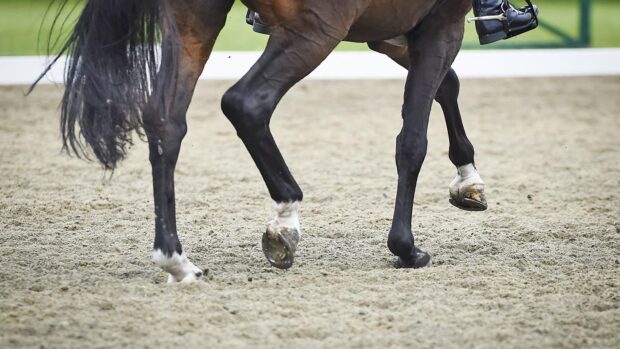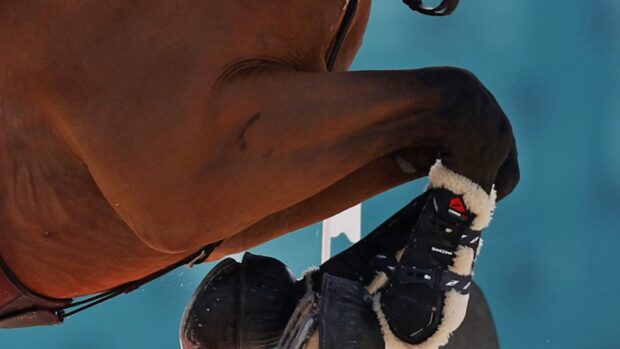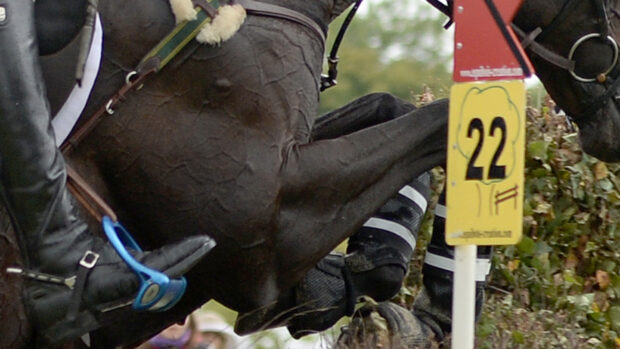Riders have been urged to be more proactive in making their voices heard to help shape the future of horse sport.
Leading figures called on riders and their connections to better engage with their national federations during the International Jumping Riders Club’s (IJRC) general meeting in December.
IJRC director Eleonora Ottaviani led the call, stressing that votes on rule changes are made by national federations at the FEI general assembly. She was backed “100%” by Irish Olympic showjumper Jessica Kürten, who is also chair of the FEI athletes’ committee.
“Riders have to get much closer to their federations, because it’s federations in the end that have so much vote on what’s being done,” said Jessica.
Mrs Ottaviani gave examples of how the IJRC works closely with the FEI on looking at how to address issues within the sport, such as the hotly debated eliminations rule. But that approval for changes ultimately comes down to national federations, which is why she is keen for riders to become more proactive in relationships with their federations.
Jessica added: “Federations have such a big say; there is so much politics going on behind the scenes in the sport that riders actually don’t like to get involved with. But I have seen it now a lot that we need to be very proactive to make sure that the message getting across to the EEF [European Equestrian Federation], to the FEI, to the federations is our message, and not political messages from people wanting to make careers. I think this is really important.”
‘Joint responsibility’
The discussion is an extension of a long-running talking point across FEI disciplines, on who is responsible for alerting riders to potential rule changes.
One recent example of this was in eventing, where changes to athlete categorisation rules in 2023 caught some out ahead of Badminton.
A British Equestrian (BEF) spokesman told H&H that it represents its member bodies in the FEI rules revision process.
“Stakeholders may contact their FEI discipline member body with any feedback or suggestions on proposed rule changes, which the member body may choose to discuss within their own technical committees,” she said.
“British Equestrian will then collate this information and submit it to the FEI for consideration. In matters involving multiple disciplines, our stance is to take a consensus of opinion across the disciplines.
“In addition, athletes can submit feedback on rule changes via their elected athlete representatives on the various FEI discipline committees.”
She added that the BEF shares decided rule changes with member bodies, and it is their decision how to relay that. The BEF also shares information with those on the World Class programme, and major multi-discipline changes are shared on its platforms.
“However, the ultimate responsibility to keep abreast of rule changes must sit with the athletes, which is stated in the FEI’s general regulations,” she said.
Eventing Riders Association (ERA) president Bruce Haskell said transparency and communication from the FEI around the rule change process has noticeably improved over the last 18 to 24 months, and there is already rider input.
“I see the process of changes as really good. I’ve seen it get way better, much more consultative, national federations are consulting everybody’s getting to say their piece, and we’re very confident with Bettina Hoy in this role [as FEI eventing athlete representative],” he said.
He added that it’s something those in the sport “can all get better at”, and although he believes British Eventing should notify members as soon as possible about changes, he noted that everyone can read the rulebook.
“My criticism is that the FEI governance model doesn’t allow sufficient time for people to make changes,” he said. “In eventing, we have to backdate our development of any endurance level horse so far in advance with so much planning that a six-week window isn’t enough. They need to shift the modification forward.”
An FEI spokesman told H&H it has a “comprehensive rules revision process”, with deadlines “clearly outlined”, athlete representatives, press releases at key moments, live-streaming of discussions at the FEI sports forum and communication with national federations and other stakeholders at each stage.
The final draft is publicly available four weeks before the general assembly, revised rulebooks are published on the FEI website, and videos summarising key changes are published on the FEI’s education platform.
“The process therefore is not only comprehensive but also very transparent, conducted in cooperation with all FEI stakeholders, including athletes, at every stage,” said the spokesman.
“We believe the FEI is making a significant effort at communicating with the stakeholders and it is a joint responsibility to ensure that everyone involved in FEI events is aware of the latest developments.”
You might also be interested in:

Subscribe to Horse & Hound magazine today – and enjoy unlimited website access all year round

FEI to work with riders on ‘chaotic’ tack app issues

Dressage riders allowed to ditch spurs completely, plus other horse sport rule changes for 2024

Showjumpers speak out in last-ditch appeal to FEI
Horse & Hound magazine, out every Thursday, is packed with all the latest news and reports, as well as interviews, specials, nostalgia, vet and training advice. Find how you can enjoy the magazine delivered to your door every week, plus options to upgrade your subscription to access our online service that brings you breaking news and reports as well as other benefits.




